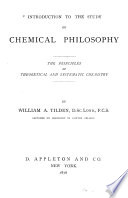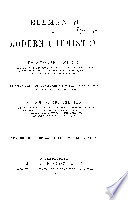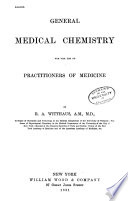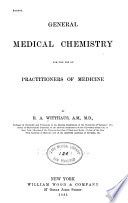 | Sir William Augustus Tilden - 1876 - 316 pages
...COJ-3 3 + HCN + 2 H 2 O + HCl (CH 3 Acetone. Hydrocyanic CH 3 acid. C^-OH ' JNi1 ^ 1 /CH 3 , VTTT pi X CO.OH Acetonic or Ammonium oxybutyric acid. chloride....acids. For example, ethylic alcohol yields acetic acid :— C 2 H 5 .OH. - H 2 + O = C,H 3 O.OH Ethyl alcohol. Acetic acid. Dihydric alcohols may yield either... | |
 | Charles Adolphe Wurtz - 1879 - 709 pages
...radicals of these glycols. Ordinary glycol may yield two acids by oxidation, the first resulting from the substitution of an atom of oxygen for two atoms of hydrogen, the second from the substitution of two atoms of oxygen for four atoms of hydrogen. The following formulae... | |
 | Rudolph August Witthaus - 1881 - 464 pages
...although formed in a variety of ways, may be considered as derived from the alcohols of the series CnH^^O, by the substitution of an atom of oxygen for two atoms of hydrogen, by oxidation of the radical. iMISTRY. O fegetable kingdoms. As its "jf red ants, from whose bodstinging... | |
 | Rudolph August Witthaus - 1881 - 474 pages
...formed in a variety of ways, may be considered as derived from the alcohols of the series C.Hj.^O, by the substitution of an atom of oxygen for two atoms of hydrogen, by oxidation of the radical. As the higher terms exist in the fats, and as the lower members of the... | |
 | Imperial Institute (Great Britain) - 1905 - 416 pages
...of oxygen, as in the case of aldehydes— eg citral C10H16O and the terpene limonene C10H16; or (3) by the substitution of an atom of oxygen for two atoms of hydrogen, as in carvone C10H14O and limonene C10H16. The same oil may contain terpene alcohols, their esters,... | |
| |